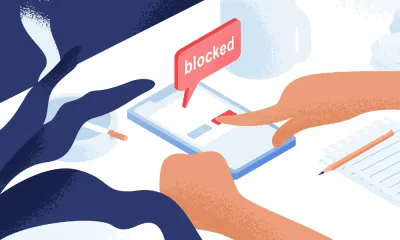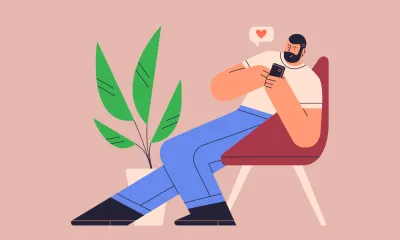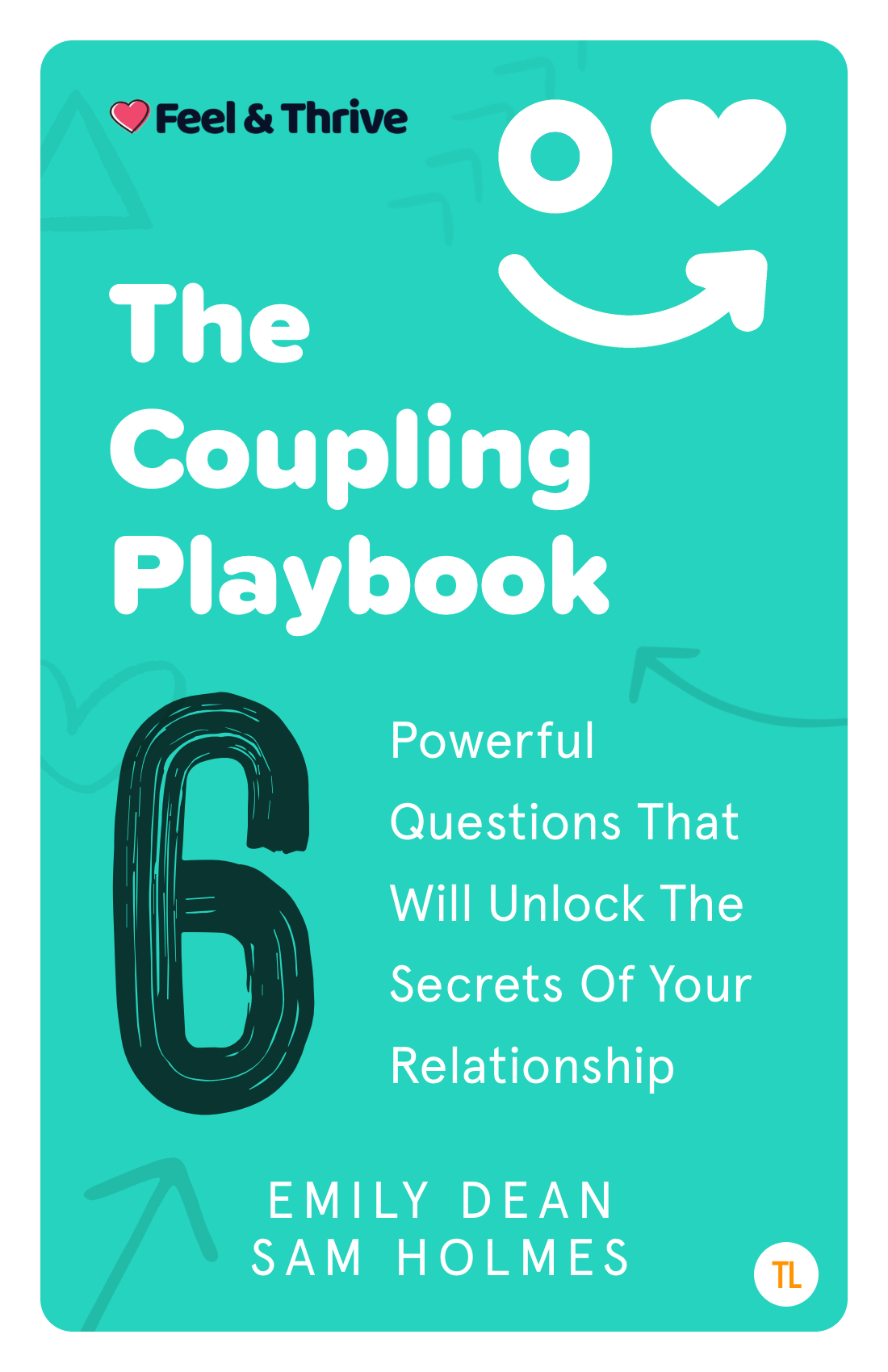Finding love is anything but easy. If you've had a bad experience in the past, establishing a healthy relationship can be even more challenging. Depending on the severity of your past trauma, you may go into all dates assuming the worst case will become the norm.
Sometimes, planning for the worst-case scenario makes sense. However, if you constantly assume that your romantic partner is cheating, lying, or going to break your heart, you'll have a hard time establishing a deeper relationship with anyone.
Things to know
- Pistanthrophobia is an extreme fear of betrayal that makes it hard to trust others.
- It often stems from a traumatic experience with a previous relationship.
- You can work through trust issues with cognitive behavioral therapy and exposure therapy.
If you find that you can't trust anyone, you may find that you have an excessive fear of trust, a condition called pistanthrophobia.
Sounds like you? Here's what we'll cover in this article:
- What Is Pistanthrophobia?
- Symptoms Of Pistanthrophobia
- How Do I Know If I Have This Phobia?
- Why Do I Have A Fear Of Trust?
- Pistanthrophobia Can Cause Relationship Issues
- How To Overcome Your Fear Of Trusting Others
What Is Pistanthrophobia?

Phobias are a unique type of anxiety disorder that involves a persistent, excessive fear tied to a specific object or living thing. Most of us think about phobias like arachnophobia (fear of spiders) or acrophobia (fear of heights). However, there are thousands of phobias out there, including pistanthrophobia.
Pistanthrophobia is the term used to describe a fear of trusting others. In many cases, this fear has a deeper meaning than merely that — it's a fear of being hurt in a romantic relationship.
Since the object of this phobia poses no actual danger, medical experts categorize it as a "specific phobia," which is an intense and irrational fear.
Symptoms Of Pistanthrophobia
No single person experiences this fear of trust the same way. However, common symptoms of pistanthrophobia include:
- Feelings of panic and fear around intimate relationships
- Avoidance of deep conversations with a new person or love interest
- Appearing guarded or withdrawn in new relationships
- Running away from conversations that turn to topics related to intimacy, love, or romance
- Not responding to romantic advances or flirting
- Refusing to make new connections with people
Like most other phobias, this fear of trusting others is considered to be a mental health condition that requires help from a licensed therapist to overcome. If left untreated, pistanthrophobia can severely impact a person's ability to find and form connections with anyone.
How Do I Know If I Have This Phobia?

If you are unsure whether you have issues with trusting people, ask yourself:
- Do I snoop or constantly look at what people are doing to the point that it could be an invasion of privacy?
- Do I look at what a love interest is doing on social media, stalk their instagram, see what they comment on, and what they watch?
- Do I jump to conclusions about others, even when I don't have any tangible proof?
- Am I overly clingy to the point that the person I'm dating can't go anywhere alone?
- Do I do things to purposely test people to see if they are potential liars or cheaters?
- Do I need constant reassurance that my partner loves me, is telling the truth and can be trusted?
If you answered yes to several or all of these, then chances are you do have this phobia.
Why Do I Have A Fear Of Trust?

Phobias are irrational fears that often feel intense and painful for the person living with them. To most people, these fears seem misplaced and extreme. The fear may not make sense and can often be misunderstood as attention-seeking tendencies.
However, nearly all phobias are triggered by a specific event or person. In other words, this seemingly "irrational fear" makes perfect sense to the person experiencing it. In their brain, there's a clear sign of danger in the object or person they fear.
A traumatic experience
Many people with pistanthrophobia develop this fear based on a past relationship. They may have felt hurt or betrayed by a previous partner, and that experience left them scarred. The relationship may have been a traumatic experience for the person or simply a healthy relationship that ended abruptly.
A rejection
Sometimes, this fear can also spark after a painful rejection from someone who didn’t share mutual feelings. That painful experience can leave the person determined to avoid that serious disappointment again by refusing to accept any sort of date or close connection.
Anxiety or low self-esteem
Even if you haven’t lived through painful experiences in a prior relationship or dealt with past trauma, you can still develop trust issues that spiral into a phobia.
If you deal with an anxiety disorder and low self-esteem, you may avoid deeper relationships to protect yourself from negative experiences or painful endings.
Pistanthrophobia Can Cause Relationship Issues

Trust issues may seem common and even helpful (in that they can be protective). However, the reality is that these seemingly innocent fears can cause some serious issues in your future relationships:
Lack of emotional intimacy
When you don’t trust others, you can't develop a strong emotional attraction with them. Instead, you will establish surface-level connections that lack emotional intimacy.
Relationships that lack emotional intimacy often fall apart because partners feel disconnected. This creates a void that a partner will fill with someone else.
Attachment issues
Healthy, happy relationships thrive on secure attachments. However, people who cannot trust their partner develop unhealthy attachment styles. Whether you have an anxious, avoidant, or fearful attachment style, you will inevitably develop unhealthy communication patterns and unhealthy coping skills.
These issues can drive a wedge in your relationship and break it apart.
Even if trust issues have been getting in your way, there's still a chance for that fairytale romantic ending.
Suspicion
When you have trust issues, you tend to be suspicious of people. You may go through their phone, make accusations, or sit with your paranoia until it causes you to react in an explosive way. Unfortunately, none of this is good for your love life and could drive your partner away.
Jealousy
Jealousy and suspicion often go hand-in-hand. So, if you are paranoid, you will become jealous over little things that really aren’t worth sweating over. This can cause you to act in irrational ways, pick fights, and even break up your relationship.
Avoidance of relationships
In severe cases, pistanthrophobia can push people to avoid anything that resembles a romantic relationship. You may turn down potential dates and avoid going places alone with coworkers or friends.
In more extreme cases, you may avoid leaving your house altogether for fear that someone will try to connect with you.
How To Overcome Your Fear Of Trusting Others

When someone has negative past experiences, the person views the world in a very jaded way. For people who experience symptoms of pistanthrophobia, it may feel like no one in the world can be trusted. However, this isn't the case. With the right strategies, you can overcome this disorder.
Most of the time, people with pistanthrophobia need to work through the underlying issues related to this fear in therapy.
There are several different approaches therapists may use, including cognitive behavioral therapy, exposure and response prevention therapy, and behavior modification. A therapist will determine the best approach based on the symptoms and underlying cause of the phobia.
If this fear is also leading to severe anxiety or depression, a doctor may also prescribe medications to help balance out these other issues. With the help of antidepressants or anti-anxiety medications, people can work through their issues without feeling so overwhelmed.
The good news is that if you're willing to do the work, you can overcome this or any specific phobia you encounter during your lifetime. So, even if trust issues have been getting in your way, there's still a chance for true love and that fairytale romantic ending with someone you love.









